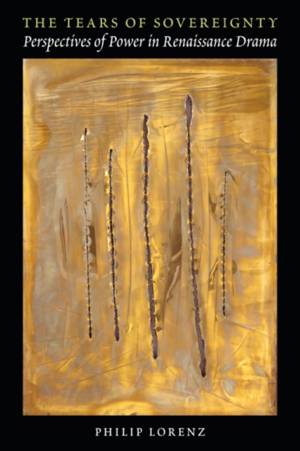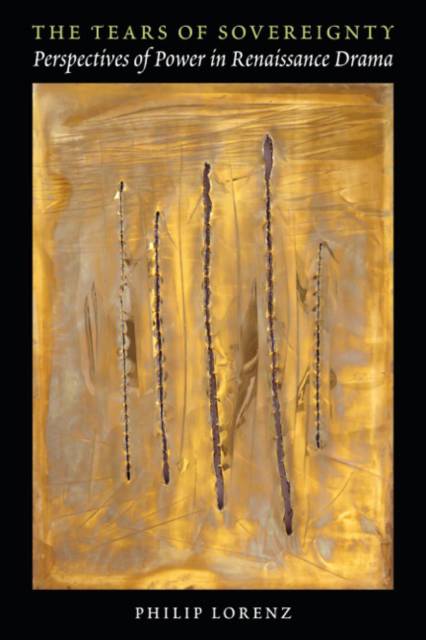
- Retrait gratuit dans votre magasin Club
- 7.000.000 titres dans notre catalogue
- Payer en toute sécurité
- Toujours un magasin près de chez vous
- Retrait gratuit dans votre magasin Club
- 7.000.000 titres dans notre catalogue
- Payer en toute sécurité
- Toujours un magasin près de chez vous
The Tears of Sovereignty
Perspectives of Power in Renaissance Drama
Philip Lorenz
Livre relié | Anglais
54,45 €
+ 108 points
Description
A comparative study of the representation of sovereignty in paradigmatic plays of early modernity, The Tears of Sovereignty argues that the great playwrights of the period--William Shakespeare, Lope de Vega, and Calderón de la Barca--reconstitute the metaphors through which contemporary theorists continue to conceive the problems of sovereignty. The book focuses in particular on the ways the logics of these metaphors inform sovereignty's conceptualization as a "body of power." Each chapter is organized around a key tropological operation performed on that "body," from the analogical relations invoked in Richard II, through the metaphorical transfers staged in Measure for Measure to the autoimmune resistances they produce in Lope's Fuenteovejuna, and, finally, the allegorical returns of Calderón's Life is a Dream and Shakespeare's The Winter's Tale. The "tears" of sovereignty are the exegetical tropes produced and performed on the English stages and Spanish corrales of the seventeenth century through which we continue to view sovereignty today.
Spécifications
Parties prenantes
- Auteur(s) :
- Editeur:
Contenu
- Nombre de pages :
- 392
- Langue:
- Anglais
Caractéristiques
- EAN:
- 9780823251308
- Date de parution :
- 01-07-13
- Format:
- Livre relié
- Format numérique:
- Genaaid
- Dimensions :
- 152 mm x 229 mm
- Poids :
- 657 g







